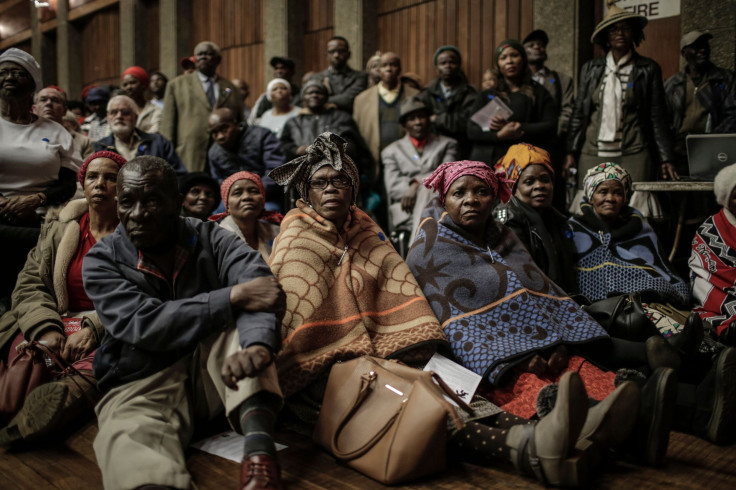What Is Happening In South Africa? Trump Wants 'Farm Seizures' Investigated

On Wednesday, President Donald Trump said he had asked Secretary of State Mike Pompeo to look into the “farm seizures and expropriations” being carried out by South African government.
Other than a segment on South Africa’s land redistribution on Fox News, hosted by Tucker Carlson, Trump’s tweet came following an article published on a U.S. think-tank's website by the editor of HumanProgress.org and a senior policy analyst at the Center for Global Liberty and Prosperity, Marian Tupy, titled “Trump Should Warn South Africa on Land Expropriations.”
The article began by noting: “South Africa’s government has begun expropriating privately-owned farmland without financial compensation, thereby ignoring the post-apartheid political settlement, which allows for land redistribution in the country on a ‘willing buyer, willing seller’ basis.”
“Eighteen years ago, Zimbabwe embraced a similar policy. As a consequence, South Africa’s northern neighbor’s economy collapsed and the country descended into penury and political violence. This scenario is likely to repeat itself in South Africa. An attack on property rights will result in the destruction of South Africa’s farming community, dramatic reduction in agricultural productivity, and mass unemployment. It could also lead to a collapse of the banking sector (which depends on land as collateral for loan-making) and the local currency, hyperinflation, and even bloodshed,” it further warned.
According to Money Control, “willing-buyer, willing-seller” policy generally means “that the owner of the property concerned is willing to dispose of his interest therein and that there is at least one genuine purchaser in the market for that interest.”
As a result of this policy, 72 percent of the land is in the hands of white farmers, despite just 8 percent of South Africa’s population of 56 million being white, according to the Land Audit Report.
Although nothing in the constitution of South Africa requires the state to stick to a “willing-buyer willing-seller” land redistribution policy, it is something that land owners have frequently used to their advantage. Citing the policy, they have successfully curbed redistribution efforts by the government by refusing to have their property expropriated and also in many cases, demanding the state pay exorbitant prices for property intended for expropriation.
Section 25 of South Africa’s Bill of Rights places an obligation on the state to “take reasonable legislative and other measures, within its available resources” to effect land redistribution. This means, if the state feels it appropriate to expropriate a property in order to address the effects of widespread colonial and Apartheid-era land dispossession, it can do so through force and regardless of whether the land owner in question was willing to part with the property or accept the price being offered for it.
At the same time, however, the country’s constitution also prohibits the arbitrary deprivation of property. Hence, expropriation is made subject to the payment of compensation, “the amount of which and the time and manner of payment of which have either been agreed to by those affected or decided or approved by a court.”
In order to provide much-needed clarity on laws pertaining to land redistribution, on July 31, South African President Cyril Ramaphosa announced that African National Congress (ANC), the ruling party, would implement plans to amend the constitution in order to allow the expropriation of land without compensation, following a motion passed by parliament in February.
“The ANC will, through the parliamentary process, finalize a proposed amendment to the constitution that outlines more clearly the conditions under which expropriation of land without compensation can be effected," he said.
The idea of seizing land was initially proposed by the leftist Economic Freedom Fighters (EFF) party last year and publicly endorsed by Ramaphosa’s predecessor Jacob Zuma.
Trump also referenced the “large scale” farmer killings in South Africa as a reason for concern when it came to the government’s seizing of lands. However, according to statistics compiled by AgriSA, such murders are at a 20-year low.
It peaked in 1998 when 123 farmers were killed, and since then around 80 and 100 were murdered each year from 2003 to 2011. However, the number only reached 47 between 2017 and 2018.
Khusela Diko, a spokeswoman for Ramaphosa, said Trump's tweet was "misinformed."
"The presidency has noted Trump's tweet, which is misinformed in our view. We will take up the matter through diplomatic channels," she said.
© Copyright IBTimes 2024. All rights reserved.





















